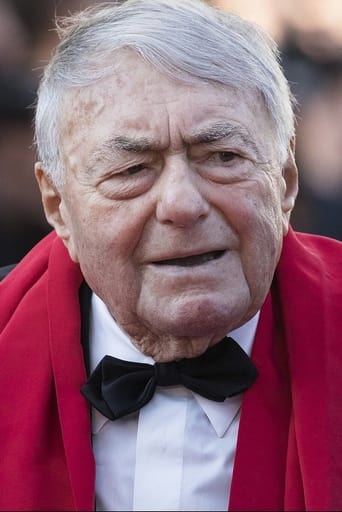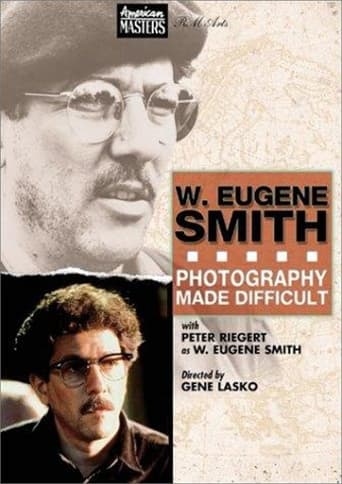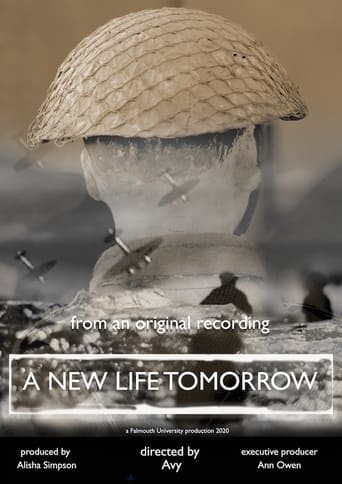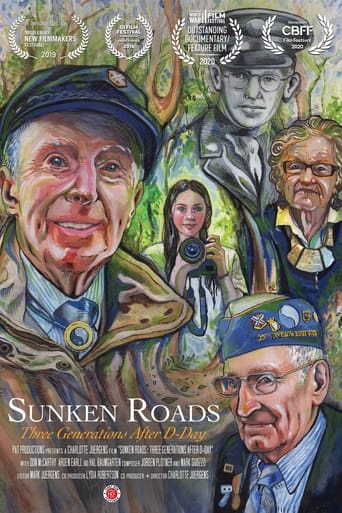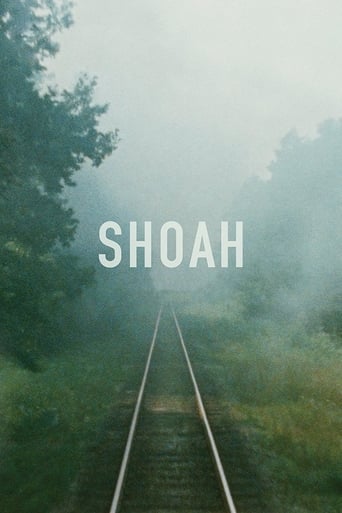
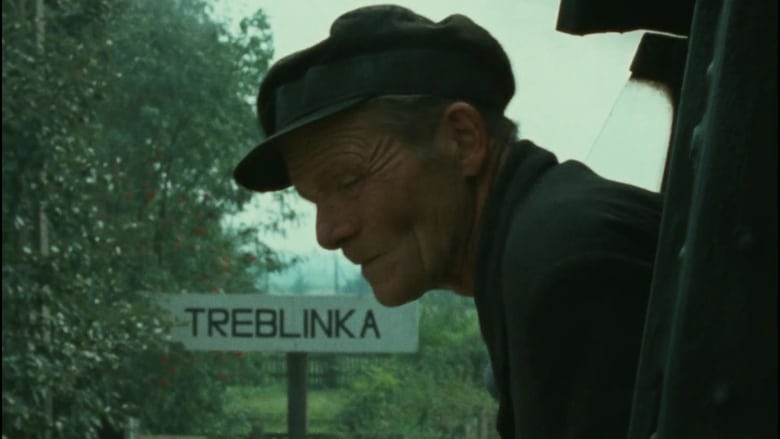
Shoah (1985)
Director Claude Lanzmann spent 11 years on this sprawling documentary about the Holocaust, conducting his own interviews and refusing to use a single frame of archival footage. Dividing Holocaust witnesses into three categories – survivors, bystanders, and perpetrators – Lanzmann presents testimonies from survivors of the Chelmno concentration camp, an Auschwitz escapee, and witnesses of the Warsaw Ghetto Uprising, as well as a chilling report of gas chambers from an SS officer at Treblinka.
Watch Trailer
Cast


Similar titles
Reviews
A monumental 9½ hours epic that was 11 years in the making, Shoah is the definitive film about the Holocaust that presents a vital slice of human history without employing a single frame of archived footage in its imagery and paints an extraordinarily grim, utterly devastating & emotionally shattering account of the greatest evil of modern times through the collective testimonies of survivors, witnesses & even German perpetrators to cement its spot amongst the greatest & most essential documentaries to ever grace the film canvas.
It goes without saying that a mammoth film like Shoah can't be summed up in a simple review. It shouldn't really be reviewed as a film, it's more of an educational piece. At 9 and a half hours straight, it's a documentary that can't be consumed in one day. It would weigh too heavily on your shoulders. I scattered my viewing over the course of a few weeks which is the ideal way to take it, but that doesn't mean I've forgotten the first half. However, in saying that, its most powerful moments come in its last two hours as it features contributors breaking down and explores familiar places, such as the White House, in the style we've seen Treblinka. By virtue of its content, it's captivating. There are only so many tragic stories of Jewish victims you can take in a certain amount of time but Shoah treats them all with the respect and attention they deserve. It's flawed filmmaking however. The problem is that it lacks structure. It wouldn't feel as laborious if each hour was broken by topic, but instead it flows from topic to topic without much reason, sometimes coming back, sometimes telling something slightly related.It is indeed in Lanzmann's passionate thoroughness that bites back at him. It doesn't hold the film back necessarily, but it could've felt like a more complete piece. It's length largely comes down to its slow pacing due to the fact that Lanzmann does not speak many of the languages the interviewers speak, particularly in the first half. As a result, everything has to be filtered twice through an interpreter, who's really telling us the story for the most part. Any slight misinterpretation or change of emphasis is down to her so she deserved quite a bit of credit. The most polarising interview is certainly the one with a Nazi who proudly gives details of concentration camp conditions. An unmistakably vile human being you can't take your eyes off. But it's a film that makes you angry and makes you sad, as the camera catches some very emotional interviewees at their most vulnerable moments. Its editing method may make the film unnecessarily scattered, but it paints a rich picture of a terrible period in human history. Admirable and essential viewing.8/10
Claude Lanzmann's nine-hour Holocaust documentary is difficult, painful, and, above all else, exhausting – both emotionally and physically. I watched this goliath over four nights, and I pretty much had to force myself into every viewing, knowingly condemning myself to two hours of misery. But I wouldn't trade the experience. There are movies, and then there are... well, there are no words for what this is. Lanzmann spent six years tracking down and interviewing Jewish survivors, German commanders, and Polish eye-witnesses, reconstructing through oral testimonies – without even a second of archival footage – the horror of the Nazi death camps. The dialogue, often interminably filtered through an interpreter and then translated from French via subtitles, is overlaid on footage of the death camps as they stand now (that is, in the 1970s/80s), as innocuous ruins or grassy fields. Thus, Lanzmann juxtaposes the atrocities described in his interviews with the quietude of the modern-day locations, acknowledging from the outset the impossibility of ever fully recreating or appreciating the horrors that took place.Throughout the film, we mostly perceive Lanzmann as an off-camera interviewer, but he nevertheless takes a very active role in the film's presentation. We note his determination to assemble a historical record at all costs: he includes footage of himself assuring Franz Suchomel, a former SS officer, that the interview is not being filmed. (Many alleged perpetrators are seen only through a grainy black-and-white hidden camera, a device that keeps them emotionally distant from the viewer, as in a 1940s newsreel). Lanzmann rather sardonically asks his interpreter to complement a German couple on their beautiful home, knowing full well that it once belonged to a Jewish family.The interviews with Jewish survivors are most haunting of all. Lanzmann doesn't ask them to communicate their emotions, but instead needles them for details, seemingly inconsequential observations that nevertheless improve our understanding of how the Final Solution operated. But he also knows when to keep quiet. The silent anguish evident on the survivors' old, scarred faces is often more powerful than words could ever be. One survivor of the Warsaw Uprising remarks to Lanzmann, "if you could lick my heart, it would poison you." We can see this even in his face.
Somewhat weakly structured and technically mediocre, but thematically powerful and devastating mammoth documentary about the unspeakable horrors of the Holocaust.The Nazi's cold and ruthless killing machinery, the total desolation and despair of the victims, the painful act of looking back on all the atrocities, the small details only witnesses can recall concisely; all this aspects and more form a haunting kaleidoscope of a time of unbelievable cruelty.Lanzmann's low-key approach proves to be just the more effective.8 out of 10


